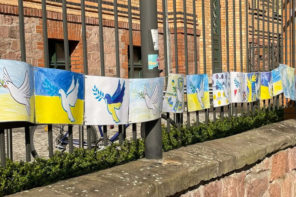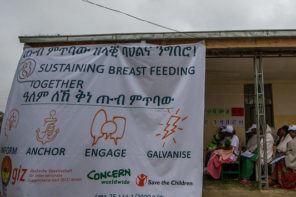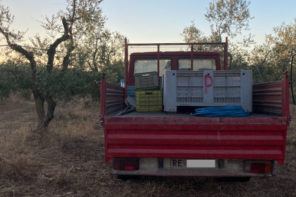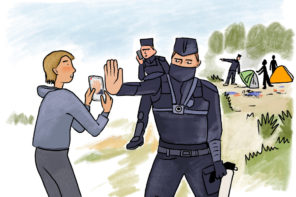Question 1: The rhetoric surrounding smugglers is packed with graphic images of violence and exploitation. What does your research indicate? Are smugglers really parasites profiting on human desperation, or, at the end of the day, do they provide a service to those on the move? How do we move the conversation forward?
Several years ago Amir Heidari, a well-known migration broker in the Middle East and Europe, told me that the first ‘human smuggler’ in history was Moses, who led his people escaping Egypt across the Red Sea. History is full of examples of such heroes who save people from oppression and death. Helping Jews out of Nazi occupied territory is a recent example. Another is the rescuing enslaved people of African decent in the US to Canada in the 19th century, known as the Underground Railroad.
Heidari proudly told me that he was his own migration board. “I work for those who are declined visas and passports,” he said. “I work for anyone who has no passport, and with pleasure help them go wherever they want”. By saying this he refers to the unjust distribution of the right of mobility. While those with a surplus of mobility rights cross borders gloriously as an honourable act of globalism and cosmopolitanism, those without papers have to do it in an informal way. For me so-called ‘smugglers’ are the consequence of unequal rights to mobility and are necessary actors as far this inequality exists.
Using the single term ‘smuggler’ for all actors who work as informal migration brokers is misleading. The people categorised as ‘human smugglers’ are not a homogenous group. Alongside the criminal ones, there are local people, such as nomads living in border regions for whom border crossing has become crucial to their economic and social life. They might facilitate an ‘illegal’ border crossing for a low price.
Question 2: Media, academic and policy circles suggest that human smuggling is a gateway into human trafficking. Many times both terms are used interchangeably. Does your work provide any insight into these phenomena and what does that say about migration?
Securitisation of migration has increasingly been formulated in terms of ‘humanitarian concerns’. The official discourse about trafficking is part of this humanitarian concern, which creates moral panic to justify the further criminalisation of migration without necessarily confirmed evidence. When using the term ‘trafficking’, the emphasis is put on coercion, violence, and exploitation imposed by the traffickers on the migrants. At the same time the discourse reduces migrants to their victimhood.
It is not of coincidence that replacing the term human smuggling with trafficking happens at the same time NATO gets involved in the war on migration by sending ships to the Aegean Sea. The paradox is that while the discourse of trafficking focuses on the issues of violence and exploitation, states’ reaction to the ‘victimes’ of trafficking is punitive in form of detention and deportation. At the same time we see how ‘smuggled’ migrants are represented as people who can afford paying ‘huge’ amounts of money to ‘criminals’. Accordingly the migrants are thus framed as complicit in illegality and serves also as fuelling a culture of disbelief towards asylum seekers.
Question 3: Another myth connected to smuggling is the one pertaining to its organisation. We hear of smugglers organised into cartels, networks or transnational groups, but also of small-scale operations. What does your work suggest, and what does that say about irregular Migration?
One not unexpected consequence of harsher border control has been the increasing danger and cost of human migration. To circumvent the most controlled border sections, smuggling routes have been relocated to more inaccessible and dangerous areas. Likewise modern biometric passports have made human ‘smuggling’ by air almost impossible and have pushed migrants into risky journeys by sea. Compared with the 1980s I see a huge difference in the informal migration brokerage. The ‘smugglers’ I knew then were a far cry from the ones I hear about today.
It seems that harsher border control has resulted in more sophisticated human smuggling operations. Current global human smuggling requires more information, transnational connections, and expertise than before. In the 1980s the brokers who forged passports, bribed officers at airports, or instructed migrants through their journeys were ‘amateurs’, often migrants themselves, and not rich or ‘criminal’ at all. What I have seen is a correlation between increasing militarisation of borders and escalation in the level of violence in human smuggling.
We should remember that the role of ‘smugglers’ has been changing. Sometimes there is no ‘smugglers’ at all involved in border crossing, like in the recent case of migrants traveling on foot today throughout Europe. Furthermore if the Council of the European Union succeeds to equate ‘human smuggling’ with ‘trafficking in person’ and thereby criminalise humanitarian assistance then everyone who welcomes, shelters, and helps travellers without paper can be accused of smuggling and trafficking.
See more responses here:
[circles_gallery ids=”18661,18780,18660,18844,18658,18657,18717,18673,18662,18669″]









